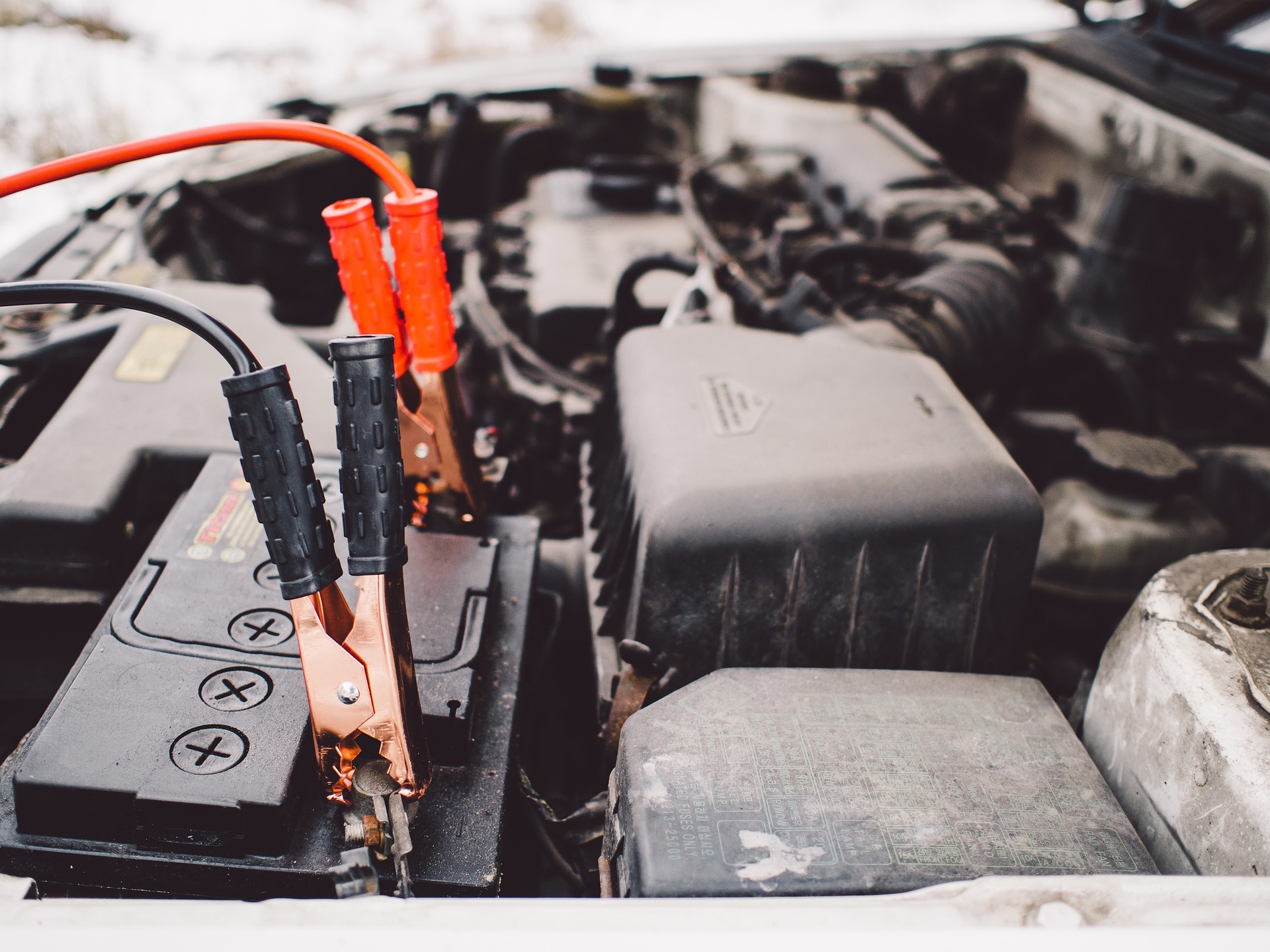
Image by StockSnap from Pixabay
Like the nervous system in the human body, your vehicle’s electrical system connects and powers the entire range of machinery. So, when an electrical problem rears its ugly head, it’s usually a sign that it’s time to call your auto mechanic immediately.
Read on to learn eight symptoms of car electrical problems, plus some common causes of electrical failures. Understanding what’s happening with your vehicle can help you paint a better picture of the issue when you bring your car or truck in for repair.
Signs of Car Electrical Problems
Vehicle Won’t Start Reliably
A car that won’t start at all obviously has major problems. But another symptom of electrical concerns is a vehicle that starts some of the time but not consistently.
Still another is a car that has trouble turning over or won’t stay charged after a jump followed by a good long drive. This can leave you stranded or make you late for appointments if you frequently have to jump-start it.
Battery or Power Warning Lights Come On
Never ignore the warning lights on your dashboard. If your battery or power warning light suddenly flashes, it’s telling you something is seriously wrong.
Headlights Not Working Properly
There are lots of things that can cause headlights and tail lamps to fail. These include:
- Broken or burned-out bulbs
- Loose or torn wires
- Malfunctioning switches
- Detached receptacles
It could be you live on a rough road in a more remote part of British Columbia. That could jar a bulb or connector loose. If you suspect rodents have been inside the vehicle, that’s another explanation for broken wires.
You and your mechanic need to do some detective work, though, to answer the question, “Why are my car headlights not working?” Your vehicle lights are required for operation, and they affect your safety and that of other motorists.
Dashboard Lights Go Out While Driving
While “ghost mode” may be a popular fad among daredevil drivers, for most people, if their car dashboard lights went out — even once — it was a scary scenario. This is something that must be fixed ASAP because it’s a safety issue.
Try to make note for your mechanic if the lights flicker, remain off, or go off and then come back on again. Also, you should be able to describe if it’s the entire dashboard panel or only some features of the controls.
Electrical Components Not Functioning
Sometimes certain electrically powered elements will stop working, like the radio or window controls. Maybe your dome lights dim unexpectedly.
Car electrical problems after rain, for instance, are quite common. However, even if it seems like just a nuisance, it’s important not to delay diagnosing the problem, lest it get worse.
Power Surges or Difficulty Idling
Do you feel your car or truck engine suddenly lunge forward or lag when you put your foot to the floor? Does the vehicle stall when idling? These can be signs of electrical issues that must be checked immediately.
Frequently Blown Fuses
Are you often replacing the same fuses in your automobile? The occasional blown fuse isn’t a big deal, like a circuit breaker on your home’s electrical panel that cuts out once in a while. But if it happens continually, you want to find out why.
Burning Odour
Some electrical problems produce an unpleasant burning smell, like plastic or rubber on fire. Avoid using your vehicle if this happens, as it could be a precursor to a fire. Get a tow to your mechanic’s shop.
Possible Causes of Auto Electrical Problems
There are lots of things that can cause vehicle electrical issues, including:
- Dead, old, or faulty battery
- Loose battery straps or connections
- Improperly installed battery (reversed poles)
- Faulty ground connections
- Weather extremes — hot or cold
- Car sitting for a long time
- Exposure to moisture or salt air
- Excessive vibration or rough roads
- Malfunctioning alternator
- Faulty starter motor
- Loose fuses or bad fuse box
- Overheated or melted fuse
- Loose, broken, corroded, or chewed wires
- Short circuits or damaged wire insulation
- Bad or damaged spark plugs or glow plugs
- Broken ignition coils
- Worn out sensors
- Dead key fob battery
- Failure of engine control module (computer)
Sometimes vehicle electrical problems are interrelated. An issue with one automotive component can cause problems with another, in a domino effect. That’s why it’s essential to bring your vehicle in to an experienced mechanic so they can give you a complete diagnosis and plan for repair.
